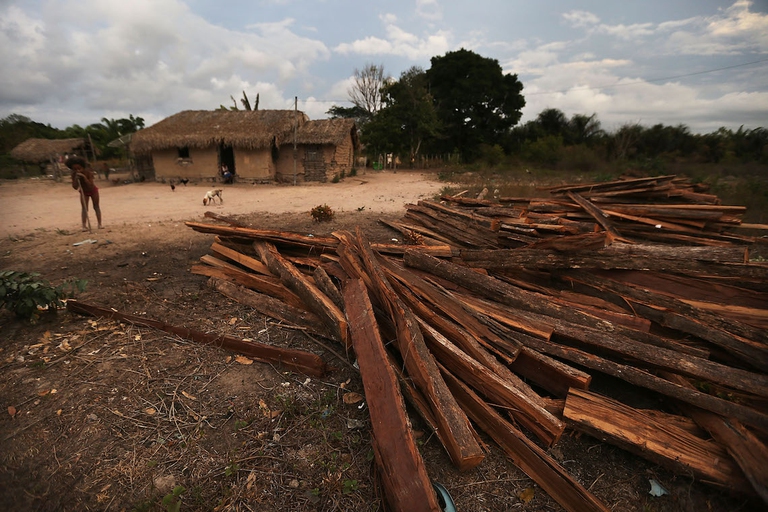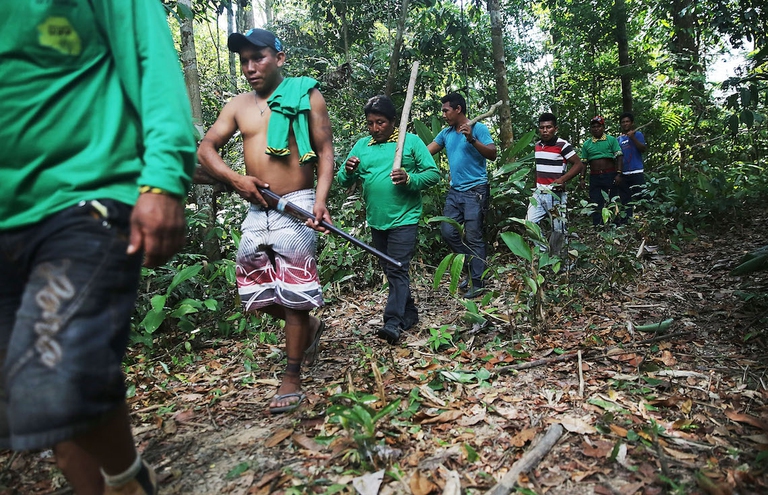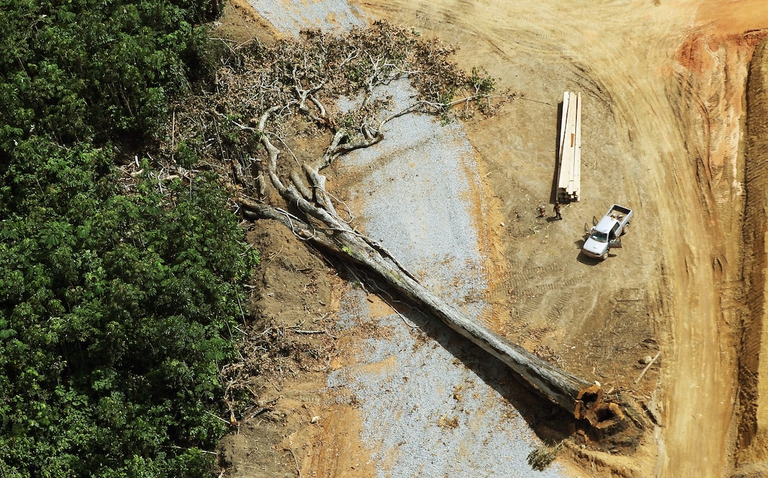
A special report from the Yuqui territory delves deep into the dreams, challenges, joys and sadness of one of Bolivia’s most vulnerable indigenous groups.
Protected areas to safeguard the Kawahiva people – one of the uncontacted indigenous tribes of Brazil’s Mato Grosso state – from the risk of extinction. These will be created according to a decree issued last month by Brazil’s recently appointed Minister of Justice Eugênio Aragão. Survival International’s campaign This decision came after months of campaigning
Protected areas to safeguard the Kawahiva people – one of the uncontacted indigenous tribes of Brazil’s Mato Grosso state – from the risk of extinction. These will be created according to a decree issued last month by Brazil’s recently appointed Minister of Justice Eugênio Aragão.
This decision came after months of campaigning by indigenous rights protection NGO Survival International. The aim was to sensitise public opinion on the exploitation of Kawahiva territories and the human rights abuses faced by them.
Illegal logging is the harvesting, transporting, processing, buying or selling of timber in violation of national law. This phenomenon occurs even in protected areas and is fuelled by the increasing international demand for timber, paper and their derivative products.
The Kawahiva are endangered by illegal logging practices and other external menaces to their ancestral territory. These are compromising their right to land and self-determination. Over the years, the tribe has been forced to live on the run, escaping from loggers and ranchers’ attacks aimed at stealing their land and resources. This has amounted to a genocide targeting the community, according to Survival. Outsiders also affect indigenous people’s health by introducing diseases like flu and measles against which the Kawahiva, an uncontacted tribe, have not developed immune defences.
The Brazilian government’s decision will implicate a demarcation of their territory, officially recognising it as a “protected indigenous area”. In the next few months, FUNAI, Brazil’s Indigenous Affairs Department, will establish the limits of the indigenous territory and establish how many funds and field workers will be designated to protecting it.
Survival International played a key role in mobilising international public opinion and putting pressure on the Brazilian government. The campaign was launched last October and fronted by Oscar-winning actor Mark Rylance. More than 14,000 emails were sent to Aragão.
A few months before the 2016 Rio Olympic Games, Survival also inaugurated the Stop Brazil’s Genocide campaign. This is aimed at preventing the annihilation of the country’s tribal peoples and stopping PEC 215, a proposed constitutional amendment that would seriously undermine indigenous land rights. It would delegate the Brazilian Congress the duty of demarcating indigenous territories, as well prohibiting the expansion of already existing indigenous areas.
States have the duty to protect human rights from abuses at the hands of companies and private interests, according to the 2011 United Nations Guiding Principles on Business and Human Rights. They must adopt appropriate measures “to prevent, investigate but also punish and redress such abuses through effective policies legislations, regulations and adjudication”.
In Brazil, there are about 100 uncontacted indigenous tribes. Brazilian authorities’ commitment will be fundamental to safeguarding them and ensuring permanent protection of their land.
Siamo anche su WhatsApp. Segui il canale ufficiale LifeGate per restare aggiornata, aggiornato sulle ultime notizie e sulle nostre attività.
![]()
Quest'opera è distribuita con Licenza Creative Commons Attribuzione - Non commerciale - Non opere derivate 4.0 Internazionale.
A special report from the Yuqui territory delves deep into the dreams, challenges, joys and sadness of one of Bolivia’s most vulnerable indigenous groups.
The Yuqui people of the Bolivian Amazon fight not only to survive in the face of settlers, logging and Covid-19, but to preserve their culture and identity.
Jair Bolsonaro is accused of crimes against humanity for persecuting indigenous Brazilians and destroying the Amazon. We speak to William Bourdon and Charly Salkazanov, the lawyers bringing the case before the ICC.
Activists hail the decision not to hold the 2023 World Anthropology Congress at a controversial Indian school for tribal children as originally planned.
Autumn Peltier is a water defender who began her fight for indigenous Canadians’ right to clean drinking water when she was only eight years old.
The pandemic threatens some of the world’s most endangered indigenous peoples, such as the Great Andamanese of the Andaman and Nicobar Islands in India.
The Upopoy National Ainu Museum has finally opened. With it the indigenous people of Hokkaido are gaining recognition but not access to fundamental rights.
A video shows the violent arrest of indigenous Chief Allan Adam, who was beaten by two Royal Canadian Mounted Police (RCMP) officers.









